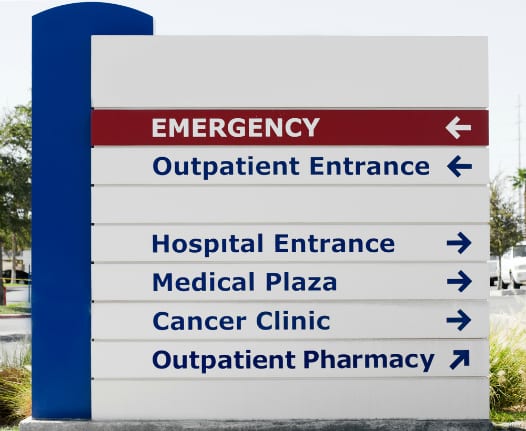New Medicare Mandate Aims to Cut Costs But Could Affect Treatment
Admission procedures may run a little differently at your local hospital beginning this week. October 1 marked the launch of a key provision of the ObamaCare law that could create changes in the way hospitals treat elderly and poor Americans in the coming year.
In an attempt to save taxpayers money as well as enhance the quality of American healthcare, this new law will result in the fining of hospitals by Medicare that readmit patients within 30 days of discharge due to complications. These provisions, passed by the Democrat-controlled Congress of 2009, are part of the planned and measured implementation of healthcare changes under ObamaCare.
According to a study published by the New England Journal of Medicine, nearly 1 in 5 Medicare patients are readmitted within one month of being discharged. As of 2004, these return visits have been costing the federal government more than $17 billion per year.
New Law to Penalize Hospitals
Medicare will begin penalizing those hospitals whose patients have to return to the hospital within 30 days of discharge because of complications, the Associated Press reported. Government officials estimate that at least 2,200 facilities – two-thirds of all hospitals treating Medicare patients – will be penalized an average of $125,000 per facility throughout the next year.
During the first year under the new law, hospital care will only be measured regarding three major medical conditions: pneumonia, heart attack and heart failure. In the beginning, the fine will be capped at 1 percent of the hospital’s Medicare payments, although it is anticipated a large majority of fined facilities will actually pay less.
According to the new law, the fines will steadily increase until 3 percent of Medicare payments to facilities are at risk. Eventually, Medicare may hold additional medical treatments accountable: stenting, heart bypass, stroke treatment and joint replacements.
High Readmission Rates
Readmission rates, which are estimated to be as high as 20 percent, contribute to the elevated costs associated with American healthcare. According to the congressional advisory group Medicare Payment Advisory Commission (MedPAC), an estimated 12 percent of hospitalized Medicare recipients are readmitted with potentially preventable issues.
The government anticipates the risk of fines will force hospitals to pay more attention to improving the way Medicare patients are treated while in the hospital. The government hopes hospitals will more strongly urge patients to seek follow-up care from an outside physician.
Nancy Foster, vice president for quality and safety at the American Hospital Association, said medication mix-ups account for a substantial amount of patient troubles. It’s common for Medicare patients to deal with several chronic conditions, and a patient’s medication typically needs to be altered during a hospital stay. Medication modifications are not always shared with patients’ doctors outside the hospital and too often the patient doesn’t understand the change, which can lead to continued medical problems and possibly a trip back to the hospital. Ensuring that Medicare patients schedule follow-up care upon discharge is another serious challenge hospitals will face.
Flaws of the Mandate
Critics of the newly implemented provision are concerned with how the threat of penalties may actually work against Medicare patients and lead to a weakened quality of care for those who need it most. MedPAC research has affirmed that facilities serving the poor, especially teaching hospitals, are most likely to face these fines.
Hospital officials are also concerned about the possibility of being held liable for situations beyond their control, such as when a patient does not complete recommended treatment once discharged and needs to be readmitted as a result.
Some opponents fear the new provision will affect the level of care a Medicare patient will receive if a readmission is medically necessary within the 30 day timeframe. With hospitals already facing financial cutbacks, critics are wary about how America’s elderly and poor, especially those with chronic illnesses, will be treated.
Republican presidential candidate Mitt Romney and his running mate, U.S. Rep. Paul Ryan, have declared that, if elected, they plan to repeal the ObamaCare law. They intend to replace it with tort and insurance reform.
Sources:
- Alonso-Zaldivar, R. (2012, October 1). Hospitals face fines over too many readmitted Medicare patients. Retrieved from http://vitals.nbcnews.com/_news/2012/10/01/14171700-hospitals-face-fines-over-too-many-readmitted-medicare-patients?lite
- MacDonald, J. (2012, October 2). Feds crack down on Medicare readmissions. Retrieved from http://www.bankrate.com/finance/insurance/medicare-readmissions.aspx
- Martin, A. (2012, October 1). ObamaCare fines for hospitals begin today. Retrieved from http://www.examiner.com/article/obamacare-fines-for-hospitals-begin-today


















